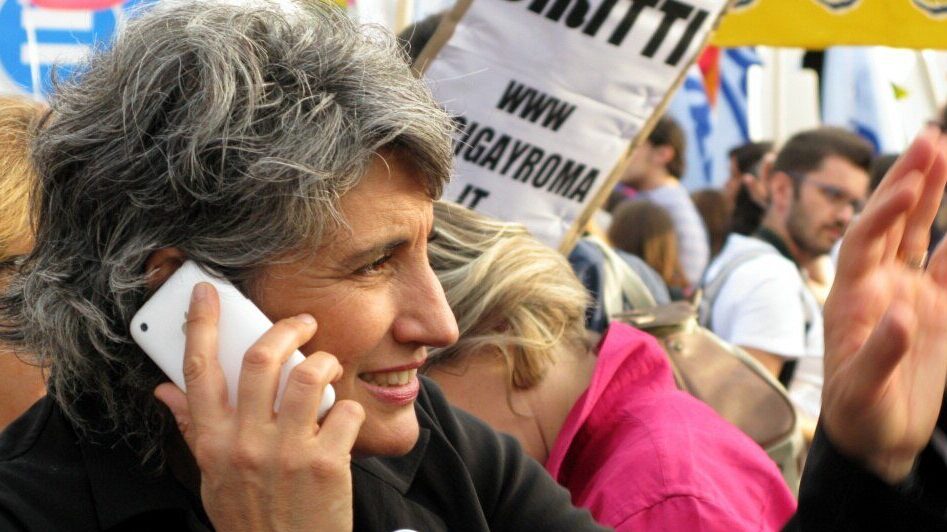
Anna Paola Concia
Photo: Nico86roma, CC BY 3.0, via Wikimedia Commons
Pro-family circles in Italy were shocked by the announcement that Anna Paola Concia, a well-known LGBT rights campaigner, had been appointed by the Ministry of Education to take charge of ’emotional education’ in schools. Public opposition to this questionable choice led to her eventual resignation.
Paola Concia, who describes herself on X as a “free woman, lesbian and feminist, and a long-standing campaigner for women’s rights,” was appointed on Thursday, December 7th by Education Minister Giuseppe Valditara to head the Educare alle relazioni project (Educating in Relationships), which aims to implement “relationships and affectivity education” in schools.
In Italian pro-life and pro-family circles, perplexity dominated. On X, Jacopo Coghe, spokesman fro Pro Vita e Famiglia association, called the selection “worthy of a far-left government.” How could Giorgia Meloni, who put the defence of the family at the heart of her campaign before being swept to power and becoming prime minister in September 2022, allow her minister to place her trust in a person whose values are totally at odds with those of the majority of her voters? Before joining the PD, Paola Concia began her political career with the Communist Party. In Italy, after coming out as a lesbian in 2000, she made headlines as the only openly gay and married Italian MP—her wedding having been celebrated in Germany, since Italy does not recognise gay marriage, only civil unions. Within the Democratic Party, she is spokeswoman for the LGBT group. Paola Concia has supported legislation to liberalise the use of surrogate mothers and backed an education reform that would introduce courses directly inspired by gender theory into the Italian curriculum.
The Pro Vita e Famiglia association, which in Italy defends the rights of the family in the style of the French movement La Manif Pour Tous—whose logo it also adopted—was outraged by the appointment and launched a petition asking Valditara to withdraw Paolo Concia’s appointment. Coghe denounced the shocking decision, describing Paola Concia as “a left-wing political activist, defending the LGBT agenda”, and belonging to the leftist opposition, the Democratic Party.
After Pro Vita’s reaction, it was the turn of the member parties of the government alliance, Fratelli d’Italia and the Lega, to distance themselves from Valditara’s choice. Valditara belongs to the Lega, a party whose election manifesto included a plan to ban all references to gender ideology from school curricula.
Nevertheless, voices were raised in Concia’s defence. Il Messagero revealed that Paola Concia was a personal friend of the president of the Senate, Ignazio La Russa, a long-standing member of the Fratelli d’Italia party and known for his outspoken opposition to adoption by same-sex couples. La Russa came to Concia’s defence in the press, describing her as “intelligent and open” and the object of “totally unjustified” attacks. Other right-wing figures have expressed their support for the LGBT activist, including Catholic politicians such as Elena Bonetti, minister for the family in Mario Draghi’s previous government. Support for Concia has also come from within Fratelli d’Italia and Forza Italia, including from Rachele Mussolini, granddaughter of the Duce and a councillor for Fratelli d’Italia in Rome.
Paola Concia also defended herself, reiterating her formal opposition to gender theory, which “erases women.” These words were not enough to redeem her in the eyes of a large part of the centre-right majority. Pro Vita declared that this was not a “personal” attack on Paola Concia. The problem was not so much the personality chosen as the fact that ’emotional education’ was being introduced directly in schools, denying parents their primary responsibility in this area.
In just a few days, Pro Vita’s petition attracted 38,000 signatures—enough for Valditara to withdraw Paola Concia’s appointment two days later, on December 9th.
From this platform, the Pro Vita e Famiglia movement now aims to obtain the definitive withdrawal of the Educare alle relazioni project, seen as an attempt to introduce sex education in schools to the detriment of parents, their children’s first teachers.
“We don’t need special state commissions for the emotional education of our children. This ‘commission’ already exists, and it’s called ‘Family’,” was the message on the movement’s X account.
